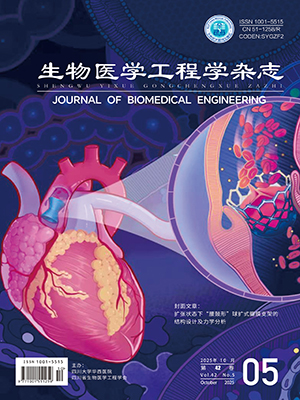Stress distribution of denture is an important criterion to evaluate the reasonableness of technological parameters, and the bite force derived from the antagonist is the critical load condition for the calculation of stress distribution. In order to improve the accuracy of stress distribution as much as possible, all-ceramic crown of the mandibular first molar with centric occlusion was taken as the research object, and a bite force loading method reflecting the actual occlusal situation was adopted. Firstly, raster scanning and three dimensional reconstruction of the occlusal surface of molars in the standard dental model were carried out. Meanwhile, the surface modeling of the bonding surface was carried out according to the preparation process. Secondly, the parametric occlusal analysis program was developed with the help of OFA function library, and the genetic algorithm was used to optimize the mandibular centric position. Finally, both the optimized case of the mesh model based on the results of occlusal optimization and the referenced case according to the cusp-fossa contact characteristics were designed. The stress distribution was analyzed and compared by using Abaqus software. The results showed that the genetic algorithm was suitable for solving the occlusal optimization problem. Compared with the reference case, the optimized case had smaller maximum stress and more uniform stress distribution characteristics. The proposed method further improves the stress accuracy of the prosthesis in the finite element model. Also, it provides a new idea for stress analysis of other joints in human body.
Citation: QIN Wenlong, CONG Ming, REN Xiang, LIU Dong. Stress analysis of the molar with the all-ceramic crown prosthesis based on centric occlusal optimization. Journal of Biomedical Engineering, 2020, 37(5): 802-808, 817. doi: 10.7507/1001-5515.201902013 Copy
Copyright © the editorial department of Journal of Biomedical Engineering of West China Medical Publisher. All rights reserved




